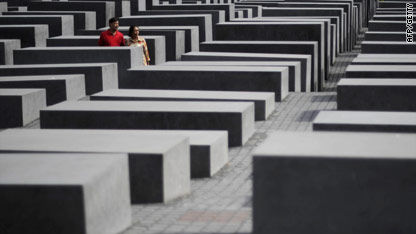Scammer
Banned

-- Isabel Guettler never experienced World War II, but for her the memory persists in many of the quiet residential streets of Germany itself.
"You come across stumbling blocks -- 'Stolpersteine' -- which have been laid in front of entrances to houses," she explains. "They name victims of the Holocaust -- men, women and children, who used to live in these houses."
The discreet cobblestone memorials are the creation of German artist Gunter Demnig. Since being introduced to Cologne in 1994, they now number many thousands and can be found across hundreds of cities in Germany and other parts of Europe.
As the number of those who witnessed the war first-hand diminishes, Guettler believes that the importance of such memorials becomes ever more significant.
"Eventually all we'll be left with is this shared cultural memory," the 27 year-old from Hamburg, who shared an iReport about the blocks, said. "I work as a teacher, so for me these objects play an enormous role in educating new generations."
As far as Guettler is concerned, unusual memorials like Demnig's "Stolpersteine" communicate the human consequences of Nazi rule far more effectively than most textbooks are able to.
"When you read long lists of dead people's names on a page, it can feel meaningless," she said. "But when you see these interesting stones outside the houses where the victims actually lived, suddenly you have this very human connection."
Keeping rooted in the past is an important component of German culture, according to Guettler.
"Everywhere you'll find plaques on houses with the names of dead musicians, artists, inventors and national heroes," she said. "And of course we have these spectacular museums."
Guettler cites as an example the Jewish Museum in Berlin. Designed by Polish architect Daniel Libeskind, the museum, which opened in 2001, is dramatically shaped like a warped Star of David.
"Its striking design has a powerful effect on visitors," she said. "This helps us to learn from and never forget the terrible mistakes of the past."
